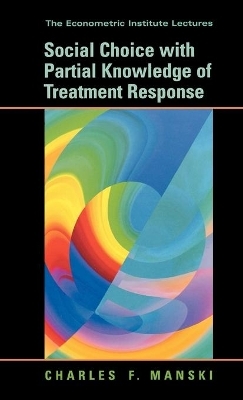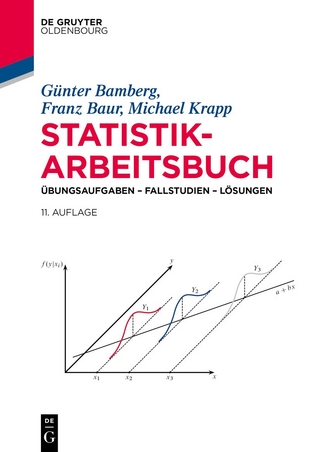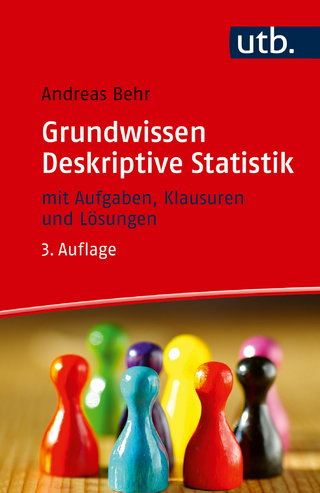
Social Choice with Partial Knowledge of Treatment Response
Princeton University Press (Verlag)
978-0-691-12153-6 (ISBN)
Economists have long sought to learn the effect of a "treatment" on some outcome of interest, just as doctors do with their patients. A central practical objective of research on treatment response is to provide decision makers with information useful in choosing treatments. Often the decision maker is a social planner who must choose treatments for a heterogeneous population--for example, a physician choosing medical treatments for diverse patients or a judge choosing sentences for convicted offenders. But research on treatment response rarely provides all the information that planners would like to have. How then should planners use the available evidence to choose treatments? This book addresses key aspects of this broad question, exploring and partially resolving pervasive problems of identification and statistical inference that arise when studying treatment response and making treatment choices. Charles Manski addresses the treatment-choice problem directly using Abraham Wald's statistical decision theory, taking into account the ambiguity that arises from identification problems under weak but justifiable assumptions.
The book unifies and further develops the influential line of research the author began in the late 1990s. It will be a valuable resource to researchers and upper-level graduate students in economics as well as other social sciences, statistics, epidemiology and related areas of public health, and operations research.
Charles F. Manski is Board of Trustees Professor of Economics at Northwestern University. He is the author of four books, including "Partial Identification of Probability Distributions" and "Identification Problems in the Social Sciences".
Preface vii Chapter 1: Utilitarian Treatment of Heterogeneous Populations 1 1.1 Studying Treatment Response to Inform Treatment Choice 1 1.2 The Planning Problem 3 1.3 Practices that Limit the Usefulness of Research on Treatment Response 11 Chapter 2: The Selection Problem 19 2.1 Treatment Choice Using the Empirical Evidence Alone 20 2.2 Monotone Treatment Response 37 2.3 Exclusion Restrictions 49 Chapter 3: Treatment Using Experimental Data 56 3.1 The Expected Welfare (Risk) of a Statistical Treatment Rule 56 3.2 Using a Randomized Experiment to Evaluate an Innovation 62 3.3 Using Covariate Information with Data from a Randomized Experiment 74 Chapter 4: The Selection Problem with Sample Data 108 4.1 Sample-Analog Rules Using the Empirical Evidence Alone 109 References 115
| Erscheint lt. Verlag | 30.10.2005 |
|---|---|
| Reihe/Serie | The Econometric and Tinbergen Institutes Lectures |
| Zusatzinfo | 7 tables. |
| Verlagsort | New Jersey |
| Sprache | englisch |
| Maße | 140 x 216 mm |
| Gewicht | 28 g |
| Themenwelt | Sozialwissenschaften ► Soziologie |
| Wirtschaft ► Volkswirtschaftslehre ► Ökonometrie | |
| ISBN-10 | 0-691-12153-2 / 0691121532 |
| ISBN-13 | 978-0-691-12153-6 / 9780691121536 |
| Zustand | Neuware |
| Haben Sie eine Frage zum Produkt? |
aus dem Bereich


